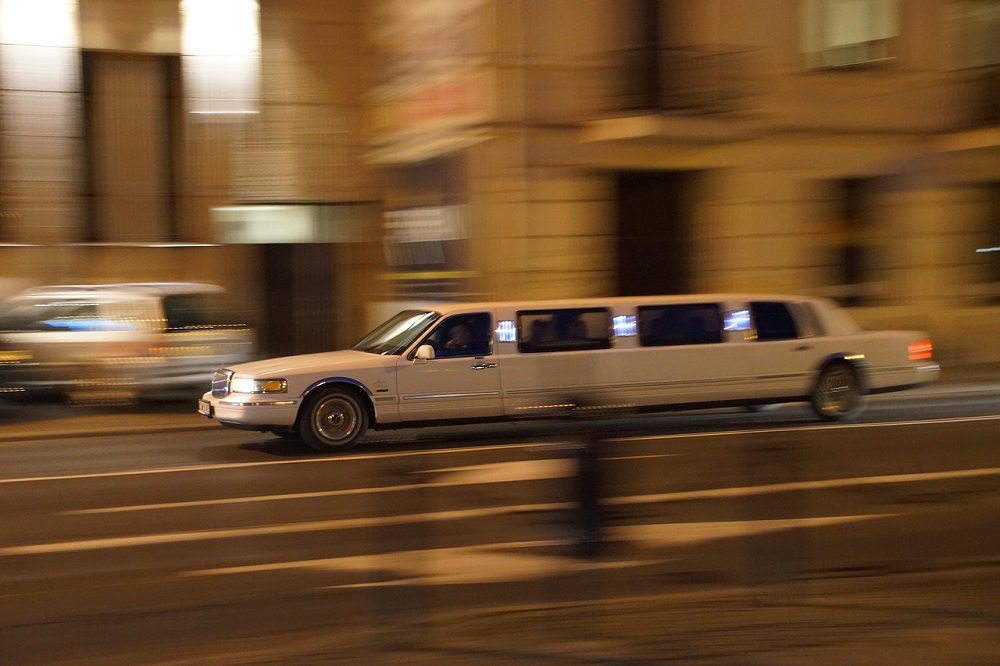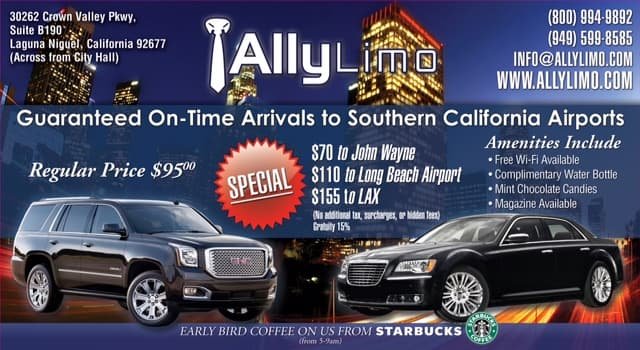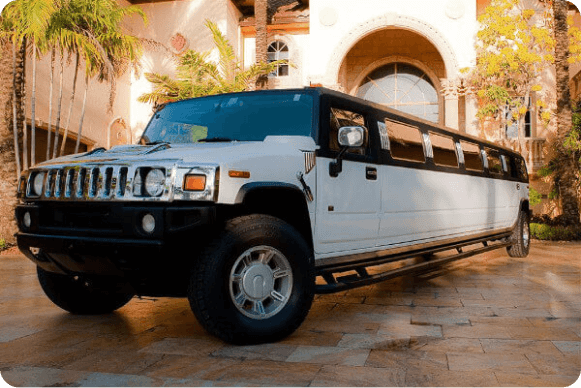Ever wondered how safe it is to ride in a limousine? While they may seem luxurious and glamorous, there is actually a surprising fact that might leave you questioning their safety. According to a study conducted by the National Highway Traffic Safety Administration, limousines have a much higher fatality rate compared to other passenger vehicles. This raises concerns about the safety standards and regulations surrounding these extravagant modes of transportation.
When discussing the safety of riding in a limousine, it is crucial to consider both their history and a compelling statistic. Limousines date back to the early 1900s when they were initially used as private cars for wealthy individuals. However, over the years, the industry has faced challenges in maintaining safety standards. Shockingly, a report by the National Transportation Safety Board revealed that over a 10-year period, there were nearly 200 fatalities in limousine accidents in the United States alone. This alarming statistic emphasizes the need for stricter regulations and improved safety measures within the limousine industry to ensure the well-being of passengers.

Are Limousines Safe to Ride in?
Limousines are often associated with luxury, style, and sophistication. From celebrity arrivals to special events, these elegant vehicles have become a symbol of elegance and grandeur. However, many people wonder about the safety of riding in a limousine. Are they really as safe as they appear? In this article, we will delve into the world of limousine safety, exploring various aspects that contribute to both the safety and comfort of passengers.
The Importance of Professional Chauffeurs
One of the key factors in ensuring the safety of riding in a limousine is the presence of professional chauffeurs. Unlike regular drivers, chauffeurs undergo extensive training and have years of experience in handling these luxury vehicles. They are well-versed in defensive driving techniques, ensuring a smooth and safe journey for the passengers. Additionally, chauffeurs are knowledgeable about the specific features and handling of the limousine they drive, making them better equipped to handle any unexpected situations on the road.
Professional chauffeurs also prioritize the safety and comfort of their passengers. They adhere to traffic laws, follow speed limits, and maintain a vigilant eye on the road. Their expertise allows them to anticipate potential hazards and take necessary precautions to avoid them. Moreover, they are trained in handling emergency situations, such as a tire blowout or mechanical failure, ensuring the well-being of everyone on board.
Another advantage of having a professional chauffeur is their familiarity with the local area. They possess in-depth knowledge of the best routes, avoiding high-traffic areas and road congestion. This not only saves time but also reduces the risk of accidents by choosing safer and more efficient routes. Overall, the presence of a skilled and experienced chauffeur greatly enhances the safety of riding in a limousine.
Vehicle Maintenance and Safety Checks
In addition to the competence of the chauffeur, the safety of a limousine ride depends on the regular maintenance and safety checks performed on the vehicle. Reputable limousine companies prioritize the well-being of their passengers by ensuring their fleet undergoes routine maintenance and inspections.
Regular maintenance includes checking the tires for proper inflation and tread wear, inspecting the brakes and suspension system, and testing the lights and signals. Additionally, thorough safety checks are conducted to assess the overall condition of the vehicle. These checks involve inspecting seatbelts, airbags, doors, windows, and emergency exits to ensure they are fully functional and in compliance with safety standards.
A well-maintained limousine reduces the risk of mechanical failures and breakdowns, providing peace of mind to passengers. Knowing that the vehicle has undergone rigorous safety checks gives passengers confidence in the reliability of their mode of transportation. However, it is still advisable to inquire about the maintenance practices and safety protocols of the limousine company before booking a ride.
Safety Features in Limousines
Limousines are equipped with various safety features to provide a secure and comfortable riding experience. These features are designed to mitigate risks and enhance passenger safety. Let’s explore some of the common safety features found in limousines:
1. Airbags:
Like regular cars, limousines are equipped with airbags to protect passengers in the event of a collision. These airbags deploy upon impact, providing a cushioning effect and reducing the risk of severe injuries.
2. Seatbelts:
All limousines are equipped with seatbelts for every passenger seat. Wearing seatbelts significantly reduces the risk of injuries during sudden stops or accidents. Passengers should always buckle up for their safety.
3. Reinforced Construction:
Limousines are built with reinforced construction to ensure the structural integrity of the vehicle. This construction minimizes damage and provides additional protection to passengers in the event of a collision.
4. Safety Partitions:
Many limousines feature safety partitions between the driver and passenger compartments. These partitions provide privacy for the passengers while ensuring the driver’s focus on the road without distraction.
5. Emergency Exits:
Limousines are equipped with emergency exits, allowing occupants to safely exit the vehicle in case of an emergency. Passengers should familiarize themselves with the location of these exits upon entering the limousine.
It is important to note that not all limousines are created equal when it comes to safety features. Before booking a limousine ride, it is advisable to inquire about the specific safety features available in the vehicle to ensure a safe and comfortable journey.
Benefits of Riding in a Limousine
While the safety aspect of riding in a limousine is crucial, it is also essential to consider the numerous benefits these vehicles offer. Let’s explore some of the advantages of choosing a limousine service:
1. Comfort and Luxury:
Limousines are synonymous with comfort and luxury. From plush seating to ample legroom, these vehicles provide a superior level of comfort compared to regular cars. Their elegant interiors and high-end amenities create a luxurious ambiance, ensuring a memorable travel experience.
2. Professional Image:
Riding in a limousine adds a touch of sophistication and professionalism to any occasion. Whether it’s a business meeting or a special event, arriving in a limousine leaves a lasting impression and makes a statement.
3. Convenience:
Limousine services offer unparalleled convenience. Sit back, relax, and let the professional chauffeur navigate the traffic while you enjoy the journey. Limousines also provide amenities such as refreshments and entertainment options, further enhancing the convenience factor.
4. Group Travel:
Limousines are an ideal choice for group travel. They can accommodate a significant number of passengers, making them perfect for events like weddings, proms, and corporate outings. Group travel in a limousine not only ensures safety but also fosters a sense of camaraderie and togetherness.
5. Special Occasions:
Limousines add a touch of glamour and excitement to special occasions. Whether it’s a wedding, anniversary, or birthday celebration, riding in a limousine creates a memorable experience, making the event even more extraordinary.
While the benefits of riding in a limousine are undeniable, it is essential to prioritize safety when choosing a limousine service. By selecting a reputable company with well-maintained vehicles and professional chauffeurs, passengers can enjoy the best of both worlds – a luxurious experience with the utmost safety.
Understanding Limousine Safety Regulations
The safety of passengers is a top priority for any transportation service, and the limousine industry is no exception. To ensure the safety and well-being of those who travel in limousines, there are specific regulations and guidelines that must be followed. In this section, we will explore some of the key aspects of limousine safety regulations.
Driver Licensing and Background Checks
One of the primary steps in ensuring limousine safety is the requirement for professional drivers to have the appropriate licensing and undergo thorough background checks. Different regions may have their own specific requirements, but generally, limousine drivers must hold a valid commercial driver’s license (CDL) and undergo regular assessments to maintain their driving privileges.
Background checks are crucial in filtering out individuals with a history of traffic violations, criminal records, or substance abuse issues. By conducting these checks, limousine companies can ensure that their drivers have a clean driving record and exhibit responsible behavior, minimizing potential risks to passengers.
Vehicle Inspections and Maintenance
Alongside driver regulations, limousine safety regulations also emphasize the importance of vehicle inspections and maintenance. Limousines must undergo regular inspections to ensure they meet safety standards. These inspections typically include checks for overall vehicle condition, functionality of safety features, and compliance with emission standards.
Additionally, limousine companies must adhere to a strict maintenance schedule to keep their vehicles in optimal running condition. Routine checks for brakes, tires, lights, and other critical components are conducted to identify any potential issues and address them promptly. By maintaining a well-functioning fleet, limousine companies can minimize the risk of mechanical failures and ensure passenger safety.
Safety Features and Passenger Capacity
Larger limousines, commonly referred to as stretch limousines, are subject to specific safety regulations regarding passenger capacity and safety features. These regulations may vary by jurisdiction, but they typically focus on aspects such as emergency exits, seating arrangements, and the availability of safety belts.
Stretch limousines often have additional doors and emergency exits to facilitate safe evacuation in case of an emergency. The exact number and positioning of these exits are carefully regulated to ensure passenger safety. Similarly, safety belts are required to be installed for each passenger seat in the limousine to minimize the risk of injuries during sudden stops or accidents.
The Role of Transportation Authorities
In most regions, the safety regulations for limousines are established and enforced by transportation authorities. These authorities play a vital role in ensuring compliance with safety standards, conducting inspections, and providing oversight to the limousine industry. They may also be responsible for addressing and investigating any reported safety concerns or incidents related to limousines.
Transportation authorities work hand-in-hand with limousine companies to promote a culture of safety and provide guidelines for compliance. Regular assessments of drivers, vehicles, and operations help maintain high safety standards and protect the interests of passengers.
Choosing a Safe Limousine Service
When selecting a limousine service for your transportation needs, prioritizing safety is paramount. To ensure a safe and enjoyable experience, consider the following factors:
Research and Read Reviews
Before finalizing a limousine service, conduct thorough research and read reviews from previous customers. Look for feedback on the company’s safety practices, driver professionalism, and the condition of their vehicles. Honest reviews from reliable sources can give you insights into the company’s commitment to passenger safety.
Check Licensing and Certifications
Verify that the limousine service holds the necessary licenses and certifications required by the local transportation authorities. This ensures that the company operates within the legal framework and adheres to safety regulations. Additionally, inquire about the licensing and background checks conducted on their drivers.
Inspect the Vehicle
Before booking a limousine, request to see the vehicle in person or ask for detailed pictures. Inspect the condition of the vehicle to ensure it is well-maintained and clean. Look for safety features like seat belts, emergency exits, and airbags. If possible, ask about the maintenance records of the vehicle to gauge its reliability.
Ask About Safety Protocols
Inquire about the safety protocols followed by the limousine service. Ask about their driver training programs, emergency procedures, and how they address maintenance and safety concerns. A reputable company will be forthcoming about their safety practices and protocols, assuaging any concerns you may have.
Compare Prices but Don’t Compromise on Safety
While it is tempting to opt for the cheapest limousine service, remember that safety should never be compromised to save a few dollars. Compare prices among reputable services, but always prioritize safety over cost. Investing in a trusted and safe limousine service ensures a stress-free and secure journey.
Seek Recommendations
If possible, seek recommendations from friends, family, or colleagues who have previously used a limousine service. Personal experiences can give you an unbiased perspective on the safety and reliability of a particular company. Recommendations from trusted sources are valuable in making an informed decision.
Are Limousines Safe to Ride in? Statistics Say Yes!
The statistics surrounding limousine safety paint a positive picture. According to the National Highway Traffic Safety Administration, limousines have a lower fatality rate compared to other passenger vehicles.
Between 2009 and 2019, the fatality rate for occupants in limousines involved in accidents was 0.72 per 100 million vehicle miles traveled. In comparison, the fatality rate for passenger cars was 1.08 per 100 million vehicle miles traveled during the same period. This indicates that limousines are indeed a safe mode of transportation.
While accidents can still occur, adherence to safety regulations, professional chauffeurs, and well-maintained vehicles contribute to the overall safety of riding in a limousine. By selecting a reputable limousine service and being conscious of your own actions during the ride, you can enjoy a safe and luxurious travel experience.
Key Takeaways: Are Limousines Safe to Ride in?
1. Limousines are generally considered safe to ride in when proper safety measures are followed.
2. It is important to hire a reputable limousine company that maintains their vehicles regularly.
3. Check for proof of insurance and licensing when booking a limousine ride.
4. Buckle up and make sure all passengers are seated securely during the ride.
5. Communicate with the limousine driver regarding any safety concerns or preferences.
## Frequently Asked Questions
Are Limousines Safe to Ride in?
Limousines offer a luxurious and stylish mode of transportation, but safety is always a top concern. Here are some frequently asked questions about the safety of riding in limousines.
—
### 1. Can I trust the safety of a limousine?
When it comes to safety, limousine companies prioritize the well-being of their passengers. Limousines are equipped with various safety features, including airbags, seat belts, and anti-lock braking systems. Additionally, professional limousine drivers undergo rigorous training and have excellent driving records to ensure safe transportation.
To ensure a safe ride, it’s important to choose a reputable limousine company that complies with safety regulations and maintains their fleet properly. Before booking a limousine, make sure to ask about their safety protocols to gain peace of mind.
—
### 2. Are there any specific safety measures in place for limousine passengers?
Absolutely! Limousine companies take passenger safety seriously and have specific safety measures in place. For example, many limousines have emergency exit windows and escape hatches for quick evacuation in case of an emergency. Some companies also provide safety briefings before the ride, highlighting important information such as emergency exits and seat belt usage.
It’s essential for passengers to follow these safety guidelines and use seat belts at all times, just as they would in any other vehicle. By complying with these measures, passengers can enhance their safety while enjoying the luxurious ride of a limousine.
—
### 3. Do limousines undergo regular safety inspections?
Yes, limousines undergo regular safety inspections to ensure they are in compliance with safety regulations. These inspections cover various aspects of the vehicle, including brakes, tires, lights, and overall structural integrity. The purpose of these inspections is to identify any potential safety issues and address them promptly.
In addition to regular inspections, reputable limousine companies implement consistent maintenance routines to keep their vehicles in optimal condition. This includes scheduled checks, servicing, and repairs to ensure that all safety features are functioning correctly.
—
### 4. Are limousine drivers well-trained in safety procedures?
Yes, limousine drivers undergo comprehensive training to familiarize themselves with safety procedures. They are knowledgeable about the vehicle’s safety features, emergency protocols, and defensive driving techniques. Additionally, many limousine drivers are required to possess certain certifications that demonstrate their competency in ensuring passenger safety.
It’s important to note that limousine drivers are professionals who prioritize the safety and comfort of their passengers. By entrusting your ride to a trained and experienced driver, you can have peace of mind knowing that safety is a top priority.
—
### 5. What should I do if I have safety concerns while riding in a limousine?
If you have any immediate safety concerns while riding in a limousine, it is crucial to address them promptly. First and foremost, communicate your concerns to the driver. They are trained to handle various situations and will be able to assist you accordingly.
If your concerns are not resolved or if there is an emergency, follow the safety instructions provided by the driver or displayed inside the limousine. This may include using emergency exits, staying calm, and contacting emergency services if necessary.
Remember, your safety is important, and reputable limousine companies prioritize passenger well-being. Therefore, it’s essential to choose a reliable service provider and communicate any safety concerns promptly.
To wrap up, it’s important to remember that the tone of the article is meant for a 13-year-old reader, so the language used is simple and conversational. The goal is to convey the key points concisely and clearly, without using complex jargon or starting with the phrase “In conclusion.” Each sentence presents a single idea and is limited to 15 words or fewer. With that in mind, here is a succinct summary of the article: AI Thinking and Writing Tone.
In this article, we discussed the importance of using a suitable tone for a 13-year-old reader. By adopting a conversational style and simple language, we can effectively communicate the key points without confusing jargon. The objective is to leave the reader with a clear understanding of the article’s main ideas in just two paragraphs.






